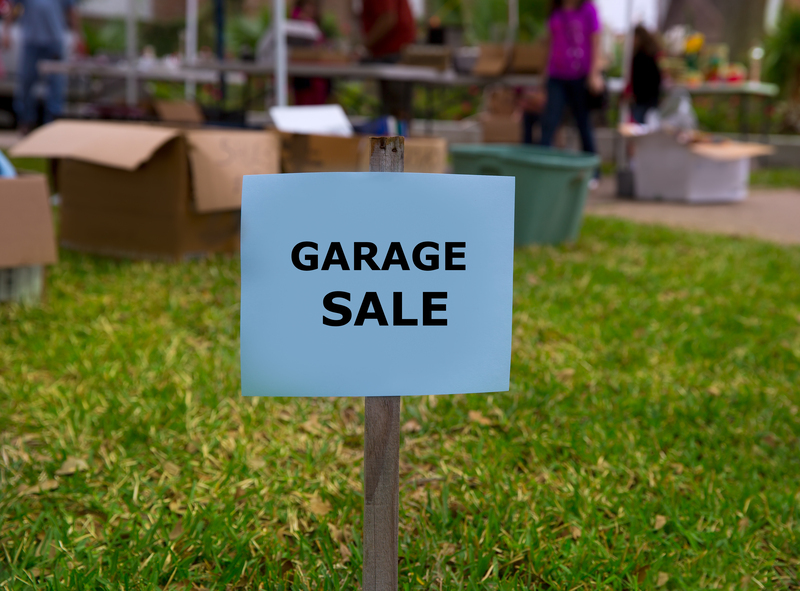Declutter Your Life: Embrace the Minimalist Living Experience
Are you feeling overwhelmed by the clutter and chaos of daily life? Are you searching for a way to simplify and find peace? The minimalist living experience may be the answer you've been looking for. In this comprehensive article, we'll guide you through the philosophy, benefits, and practical steps to declutter your life and fully embrace minimalism.
What is Minimalist Living?
Minimalist living is a lifestyle choice centered around removing excess possessions and distractions, allowing you to focus on what truly matters. At its core, minimalism is about intentionality--valuing quality over quantity and making space for purpose, joy, and calm.
Main Principles of Minimalism
- Intentionality: Mindfully choosing what adds value to your life.
- Simplicity: Reducing possessions and commitments for clarity and peace.
- Quality over Quantity: Focusing on fewer, yet better, things and experiences.
- Mindfulness: Being present in the moment, not distracted by clutter or endless to-do lists.
- Freedom: Breaking free from consumerism and societal pressures.

Why Should You Declutter Your Life?
Modern life often bombards us with material possessions, digital overstimulation, and competing priorities. Adopting a minimalist lifestyle can unlock numerous benefits:
- Reduced Stress: A tidy, simplified environment leads to a calmer mind and less anxiety.
- Increased Productivity: Fewer distractions enable you to focus on your goals and passions.
- Financial Freedom: Spending less on unnecessary items allows for saving and investing in experiences.
- Environmental Impact: Consuming less means a smaller ecological footprint.
- Enhanced Relationships: Prioritizing connections and meaningful moments over possessions.
The process to declutter your life is about more than just cleaning your home--it's a journey towards holistic well-being.
The Psychological Effects of Minimalist Living
Studies show that living in cluttered environments can increase cortisol levels (the stress hormone) and negatively affect mood and brain function. On the contrary, embracing the minimalist experience has been linked to better mental health outcomes, including:
- Improved concentration and creativity
- Greater sense of control
- Higher life satisfaction
- Decreased feelings of overwhelm
By intentionally curating your surroundings and schedule, you create space for rest, reflection, and personal growth.
How to Start Decluttering: Embrace the Minimalist Lifestyle
Ready to start your minimalist journey? Follow this practical, step-by-step approach:
1. Define Your 'Why'
Before you begin the physical work of decluttering, take time to reflect on your motivations. Ask yourself:
- What are you hoping to achieve by simplifying?
- How would a clutter-free life benefit you?
- What values are most important to you?
Writing down your goals will keep you motivated and anchored throughout the process.
2. Start Small and Stay Consistent
Tackling everything at once may be overwhelming. Instead, choose one area to start with--like a closet, desk, or single drawer. Set aside 15-30 minutes per day and build momentum.
3. Use the Four-Box Method
Sort your items into four categories:
- Keep - Items you use and cherish regularly.
- Donate/Sell - Things in good condition that could benefit others.
- Recycle - Items that can be responsibly recycled.
- Trash - Damaged or unusable items.
This method brings structure and clarity to the decluttering process.
4. Practice the "One In, One Out" Rule
To maintain your clutter-free environment, commit to removing one item for every new item that enters your home. This prevents accumulation and fosters mindful consumption.
5. Simplify Room by Room
Tackle the following areas, focusing on essentials and favorite pieces:
- Kitchen: Clear countertops, donate duplicate utensils and outdated food.
- Wardrobe: Keep versatile clothes you love and wear often.
- Living Areas: Create open, inviting spaces with minimal decor.
- Bathroom: Discard expired products and stick to daily necessities.
- Digital Space: Unsubscribe from unnecessary emails and delete unused files or apps.
6. Rethink Sentimental Items
Sentimental clutter can be the hardest to part with. Choose a few meaningful mementos to keep, and photograph the rest if needed. Remember: Your memories live in you, not in your possessions.
7. Develop Minimalist Habits
Minimalism is an ongoing practice, not a one-time event. Incorporate regular decluttering sessions into your calendar and remain conscious of your consumption habits.
Minimalism Beyond Your Home: Declutter Your Mind, Relationships, and Schedule
Declutter Your Mind
- Practice Mindfulness: Meditate, journal, or simply pause for deep breaths.
- Avoid Multitasking: Focus on one task at a time for greater effectiveness and satisfaction.
- Limit Media Consumption: Be intentional about social media, news, and entertainment intake.
Just as you clear physical objects, let go of mental clutter by prioritizing stillness and presence.
Streamline Your Commitments
The minimalist experience includes evaluating your schedule. Ask:
- Which activities bring you joy or align with your goals?
- What can be delegated, declined, or simplified?
- Are you saying "yes" out of obligation rather than authenticity?
Prioritize quality time and learn to protect your boundaries for a more meaningful life.
Foster Authentic Relationships
Minimalism teaches us to value deep, genuine connections. Choose relationships that support your growth and let go of toxic or one-sided bonds. Embrace meaningful interactions over superficial socializing.
Eco-Friendly Minimalism: Decluttering for the Planet
Adopting a minimalist lifestyle can significantly benefit the environment. By consciously consuming less and avoiding disposable culture, you help reduce waste and conservation of resources.
Ways that minimalism is eco-friendly:
- Buying quality items that last longer, reducing landfill waste.
- Reusing and repairing, not replacing at the first sign of wear.
- Choosing reusable products over single-use alternatives.
- Donating or selling items instead of throwing them away.
- Embracing experiences over material gifts.
Common Myths About the Minimalist Lifestyle
Several misconceptions prevent people from embracing a minimalist living experience. Let's debunk a few:
- "Minimalism means living with nothing."
Reality: It's about owning what you love and need--not depriving yourself. - "Minimalist homes are plain and boring."
Reality: Minimalist spaces can be warm, stylish, and personalized. - "You have to get rid of all your stuff overnight."
Reality: Minimalism is a gradual process; take your time and go at your own pace.
Tips for Maintaining Your Minimalist Lifestyle
- Perform Seasonal Declutters: Re-evaluate possessions every few months.
- Set Shopping Intentions: Ask: "Does this add value to my life?" before purchasing.
- Unsubscribe Ruthlessly: Digital clutter, such as email subscriptions, can be as overwhelming as physical clutter.
- Practice Gratitude: Appreciate the things you own and resist the urge for more.
- Create Systems: Designate places for everything to avoid re-accumulating clutter.

Minimalism as a Lifelong Adventure
Minimalism is not about strict rules or limitations. Instead, it's a journey of discovery--uncovering what makes you happy, fulfilled, and free. Your version of a minimalist life may differ from others, and that's perfectly okay. Minimalist living is not about comparison; it's a personal commitment to living intentionally and authentically.
What Will You Gain by Decluttering Your Life?
- More physical space and breathing room
- Less stress and a calmer mind
- Financial savings and greater resourcefulness
- Time for passions, hobbies, and self-care
- Meaningful relationships and experiences
Conclusion: Embrace the Minimalist Living Experience Today
In a world that often glorifies excess, embracing minimalism is a radical act of self-care and empowerment. When you declutter your life, you create new space--for peaceful mornings, creative pursuits, and intentional living. Whether you're drawn to minimalism for mental clarity, environmental reasons, or a desire for more meaning, every small step you take makes a difference.
Start today. Select one area to declutter. Reflect on your values. Let go of what no longer serves you. As you simplify your surroundings and your life, you'll discover that the minimalist experience isn't about what you lose--it's about all that you gain.
Ready to experience the freedom of minimalist living? Declutter your life and embrace the journey to a happier, more intentional you!